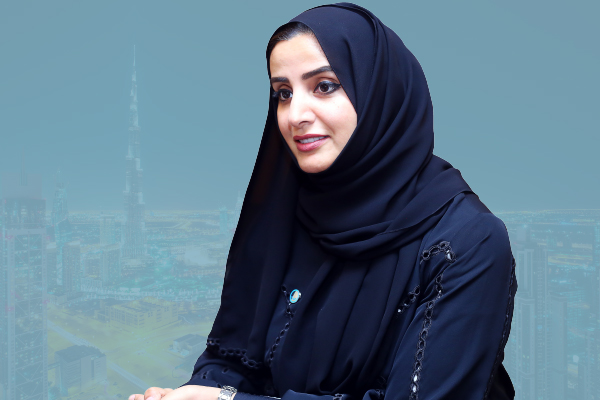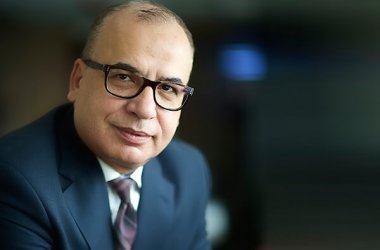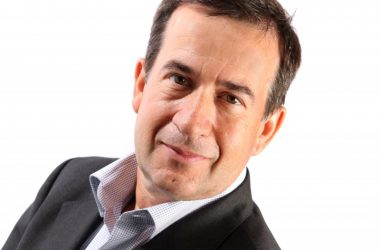Spearheading the emirate’s ambitions to be a “happier” Smart City by 2020, director general of Smart Dubai, H.E. Dr Aisha Bin Bishr, is also a champion of bringing more women into the tech industry. James Dartnell caught up with her at the 18th Global Women In Leadership forum.

What progress has been made since Dubai’s Smart City ambitions were announced in March 2014?
At the end of November, we will see our first digital backbone go live. The Dubai Data Law, which was enforced in November last year, means that entities have started to onboard their data to our platform. Shared data will allow us to integrate the whole government, and give real meaning to e-Government and Smart Government.
Also crucial to this is the IoT platform, where sensors across the city from different entities will contribute to the platform, which will allow us to benefit from the incoming data.
A collaborative approach in the city, with the government and private sector working hand in hand – partnerships which I believe are unique, and of course need to be tested with proof of concepts – will allow us to scale these initiatives across the city.
What about in terms of R&D that comes out of Dubai itself?
We have many R&D and innovation centres across the country, which have allowed a lot of entities to open their doors to accept young people to innovate with them. Our strategic partner, Dubai Silicon Oasis Authority, has an innovation centre that focuses on Smart Cities.
Our innovation partners such as Huawei, SAP and Intel are working with us to provide the right tools for those innovators. Also, we have the Future Accelerators programme, which started a few months ago, and is allowing startups to come on board and fulfill their ambitions and challenges. In this region, the government tends to solve its challenges internally, and it takes a long time to find the right solutions. We are now trying to think outside of the box to help young people come and join us in solving these challenges.
What progress do you expect to have made by 2020, both in terms of technology and equality development?
Technology alone is not our end goal in terms of delivering a Smart Dubai. It’s a means to our end goal, which is for Dubai to be the happiest city on earth, and to enrich the experience of our city by having a more efficient and safer place. We know that the speed of technology will be crucial in developing new and more innovative technologies.
We are making the most of technology opportunities, and are already making effective use of the Internet of Things and Big Data, and putting proper governance solutions around utilising them. The Dubai Government is already using these kinds of solutions to help us reach our end goal.
How does the UAE compare to the rest of the GCC on that front?
We are currently ranked very high in a number of industries globally. Whether that’s in terms of our communications infrastructure, spread of smartphones and adapting to technology, I believe that with the solutions in our pipeline, we are setting a benchmark not only for the region, but also for all emerging markets.
Beyond 2020, what results do you expect to see from the Smart Dubai initiative?
For us, next year will be transformational, as we move from the enablement phase to the impact phase. Last year, we pushed a lot of new technologies into our infrastructure, and now we need to see the impact of these technologies in reality. In other cities, the idea of a Smart City hasn’t gone beyond labs and universities, which means it is not a reality.
The Internet of Things has seen the greatest uptake in that regard, and utilising data. Until now, Big Data was theoretical – seeing how it would affect decision making. We’ve adapted these technologies and solutions and made them a part of our processes and decision making. That differentiates us.
What progress have you seen in terms of increasing the number of women in executive positions in technology?
We’ve seen a lot of ladies reaching executive positions. We now have four CIOs of government entities who are women. That’s unprecedented. In terms of executive positions across the board, we’re seeing female director generals, directors of departments, ambassadors – you name it.
Do you think that you set an example in this regard?
Absolutely. Many ladies approach me and say that they hope to reach a senior position like me. I hope I can stoke a desire for other women to be in these positions.
Over 18 percent of young women in the UAE aspire to be CEOs, a figure that far outstrips averages in most developed countries. What does that spell for this country’s future?
We know that our government is a big supporter of women being in positions throughout different levels in our government, so I don’t doubt that we will attain even higher percentages in the coming years. The future is undoubtedly bright in our region.
Surely the 37 percent of unemployed women in this country also represent a huge economic opportunity?
The government is already doing a lot to create these opportunities. It’s now up to women to capture them. I don’t believe there is any other government that supports ladies in the ways that ours does. Women can work in any sector that they want to.
Are these women the answer you’re looking for in filling the skills gap that exists in this country?
I was recently talking with one of my colleagues, who said that we now don’t have any issues in allowing ladies to balance their life with technology. Many women are starting to work from home, and are choosing the right time for them to join the workforce so they can balance family life.
Is technology a fitting industry for certain cultures across this region that restrict women?
Absolutely. Allowing women to work from home with technology allows them to progress, even though they are not necessarily on the front line. I know many female Saudi CIOs who have been helped by working in this way.
Also, the large investment being made by a number of technology companies in the region is allowing a lot of young women, and society, to open up to the idea of women working in IT.
How would you compare the opportunities that existed when you were growing up next to those that exist now for women?
Young women now need to take advantage of the opportunities that exist. Nothing is stopping them today. Thirty years ago there were many boundaries, including a lack of technologies and policies, but now everything is set up to support women being in the workforce.
Nowadays, it is a golden era for women. They can be whatever they want; nothing can stop them whether we’re talking about education or work opportunities. We never thought we would have women in the aerospace or nanotechnology sectors, but now entities are ready and willing to take them on.





